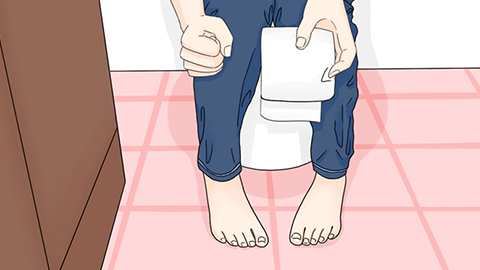What are the causes of hemorrhoids?
Generally, hemorrhoids may be caused by prolonged sitting or standing, poor defecation habits, perianal infections, constipation, portal hypertension, and other factors. It is recommended to seek timely medical consultation to identify the underlying cause and receive appropriate treatment under a physician's guidance. Detailed analysis is as follows:

1. Prolonged Sitting or Standing: Maintaining the same posture for extended periods can hinder venous return in the perianal area, causing congestion and dilation of the venous plexus, which makes hemorrhoids more likely to develop. In daily life, one should get up and move around periodically, avoid sitting or standing for long durations, and engage in appropriate physical activities such as walking or jogging to promote blood circulation.
2. Poor Bowel Habits: Spending excessive time squatting during bowel movements and excessive straining can increase venous pressure in the perianal region, leading to varicose veins in the venous plexus and the formation of hemorrhoids. One should develop regular bowel habits, shorten the duration of defecation, and avoid excessive straining.
3. Perianal Infection: When perianal infection occurs, inflammatory stimuli can weaken the elasticity of the vein walls, making them prone to dilation and the formation of hemorrhoids. This is often accompanied by symptoms such as perianal pain and redness or swelling. Patients may use medications such as potassium permanganate solution, compound fucoidan suppositories, and Ma Yinglong Musk Hemorrhoid Ointment as directed by a physician.
4. Constipation: Long-term constipation can lead to hard, dry stools. Excessive straining during bowel movements can compress the perianal venous plexus, triggering or worsening hemorrhoids, which may be accompanied by symptoms such as difficulty defecating and rectal bleeding. Patients should take medications such as lactulose oral solution, polyethylene glycol 4000 powder, or Cannabis Fruit Moistening Intestine Pills as prescribed by a physician.
5. Portal Hypertension: Elevated portal venous pressure can obstruct venous return in the perianal area, leading to congestion and dilation of the venous plexus, resulting in hemorrhoids. This condition is often accompanied by symptoms such as bloating and ascites. In severe cases, a portocaval shunt procedure may be necessary to interrupt abnormal blood flow between the portal and caval veins, thereby reducing venous pressure in the perianal region and alleviating symptoms.
In daily life, it is important to maintain a light diet, consume more fiber-rich foods such as vegetables and fruits, and ensure smooth bowel movements. Additionally, maintaining perianal hygiene by washing with warm water after defecation can help reduce the risk of infection.








